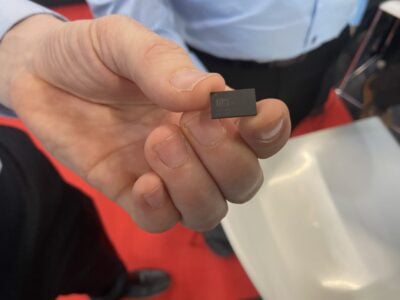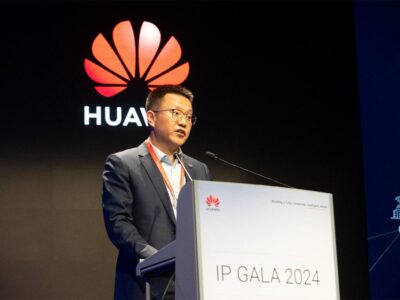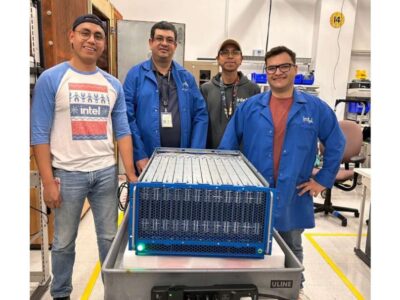
LTE-WiFi debate exposes spectrum land grab
Cellular operators are proposing LTE-U/LAA so that they can use LTE in the unlicensed frequency bands currently used by WiFi. Their mission is to offload the exploding data traffic on cellular networks to WiFi.
We suspected that there were fairness issues lurking in the LTE-U/LAA versus WiFi debate. Powerful cellular operators with licensed spectrum now want to poach the unlicensed spectrum. However, there was little evidence. We weren’t sure if cellular carriers are pushing the new standard to prevent competition from unlicensed spectrum users for their primary broadband businesses (i.e., Wireless First advocates and cable operators).
Now we have new information.
‘Smoking gun’
Dave Burstein, editor at DSL Prime, A Wireless Cloud & The DOCSIS Report, recently unearthed a document circulated among 11 carriers – including AT&T, T-Mobile USA, Sprint, China Mobile, KT, Telefonica, Orange — who attended one of the 3GPP’s working group meetings in Belgrade, Serbia in late April.
The document, “Precluding standalone access of LTE on unlicensed carriers” proposes a) to revise the 3GPP’s own rule that LTE-U could be used by any carriers (including those operating on the unlicensed spectrums), and b) and to prohibit non-LTE carriers from using LTE-U.
Burstein told said, “Telcos want LAA to require a control signal in licensed LTE spectrum — which others, like WiFi-first mobile service providers like Republic Wireless, don’t own.”
LAA, a new standard currently in development at 3GPP, is similar to LTE-U, allowing licensed cellular operators to use for data traffic the unlicensed spectrum that currently accommodates WiFi.
As background, the document even points out: “Standalone deployment in unlicensed spectrum implies drastically different business models from nowadays and might impact the value chain.”
Translation: As WiFi technology gets better and starts embracing new techniques developed for LTE-U, broadband operators such as Republic First and cable operators like Comcast could become more and more like cellular operators, thus disrupting the competitive landscape.
Burstein interprets the 3GPP’s fear of “drastically different business models” expressed in the document as “the smoking gun that the telcos are doing this to clobber competition.”
Not everyone agrees with Burstein.
When asked about the 3GPP proposal suggesting cellular operators’ desire to take "standalone access to unlicensed spectrum" out of the emerging standard (Rel 13), Rupert Baines, consultant at Real Wireless, a firm consisting of independent wireless experts, commented, “Yes, that is the proposal.” But his take was: “Those proposals are about making sure LAA stays closely linked to licensed LTE.” Baines said that Burstein “ascribes sinister reasons to it. I think he is wrong. There are sensible reasons why this is a better architecture.”
Jag Bolaria, a principal analyst at The Linley Group, added that Burstein is generally on the mark.
Bolaria explained, “There are certain things cellular can do better and WiFi can’t.” LTE, for example, can do handoffs well, but it’s difficult for WiFi to do similar handoffs with another WiFi access point, he noted. Further, LTE can use the spectrum much more efficiently than WiFi.
‘Preemptive strike’
But Bolaria pointed out that cable operators like Comcast, who have no cellular spectrum but have many WiFi access points, could improve the technology and expand their capabilities, using techniques developed for LTE-U. Non-cellular carriers, in essence, “could potentially offer their customers voice and other services – similar to those offered by cellular operators,” he said. Thus, those currently operating in the unlicensed spectrum could become a threat to cellular networks’ business in the future.
He added, “Technically, I don’t see how 3GPP can prohibit non-members from using LTE-U. It is after all a publicly available standard.” But by deliberately deciding that “Non-carrier aggregated LAA operation is not supported in Rel-13” as proposed in the memo, cellular operators’ marketing machines could turn on the heat, declaring that whatever cable operators or WiFi-first service providers are doing in the future using LTE technique “aren’t standard-compliant,” Bolaria noted.
The bottom line is that “cellular operators don’t want WiFi to start behaving like LTE,” according to Bolaria. The memo circulated among 3GPP’s working group members is nothing but “a preemptive strike,” he concluded.
Real Wireless’ Baines questioned some scenarios laid out by Burstein in his article. Burstein assumes that if standalone access is allowed on the unlicensed spectrum, “users and competitors can bypass the telecoms, cutting the revenue.”
Baines noted, “I think [Burstein] underestimates how expensive LTE is, and so he sees the non-carrier aggregated as some ‘easy entry’ for competitive operators, which it isn’t. LTE core is hard and expensive. You can’t just ‘cut out the telco.’ Or rather you can, but it is WiFi and Skype.”
Carrier aggregation
In an article posted on CableLabs’ website, Ian MacMillan, principal architect at CableLabs, discussed LTE-U as “a potential competitor on the horizon” for WiFi.
He reminded his readers, “Few technologies today are as key to how we communicate as WiFi. Worldwide about 50% of Internet traffic relies on WiFi and about 3% relies on mobile networks.” As more consumer products come equipped with WiFi it’s expected that WiFi will continue to increase its percentage of network traffic, he noted.
One of the things about LTE that worries MacMillan is not just LTE-U but LTE’s ability to support carrier aggregation (CA). CA “is intended to allow mobile operators to combine the various licensed spectrum bands they own into a single data connection between user and network. More spectrum equals more and faster data,” he explained.
MacMillan wonders happens when cellular operators decide to use CA “to not only combine licensed spectrum but also add in the unlicensed spectrum primarily used by WiFi today.” Of course, this could simplify WiFi and LTE integration, he said, because “it would all be LTE!”
(Source: DailyWireless.org)
MacMillan said: “This sounds great for mobile network operators, but what would it mean for WiFi users?”
Curiously, MacMillan is optimistic. He noted, “It’s unlikely that LTE-U would actually be deployed by a mobile network operator without some form of fairness-mechanism, because the backlash from consumers and industries would be very undesirable.” However, he did caution: “Even with a fairness-mechanism, more network technologies would be contending for the same amount of unlicensed spectrum, which could mean your WiFi connection is not as fast or responsive as it could be.”
LAA to challenge FCC
Real Wireless’ Baine contemplates the future in which the whole idea of LAA could potentially alter the definition of unlicensed spectrum itself.
Today, he explained, the rules on unlicensed specify a fairly low bar and are deliberately technology neutral. WiFi, Bluetooth, garage door openers, baby monitors, etc., all use the same band.
Baine acknowledged that over time WiFi has developed better, smarter and politer protocols, improving performance. “But they are delicate, and they rely on implicit assumptions that there aren’t other things there (or aren’t too many). In effect, they behave as though the unlicensed band were not technology neutral but were WiFi only,” he said.
In his view, “LAA changes it.”
Baines said, “Even if LAA obeys the rules, it can still stomp on WiFi. It can be more assertive, more ‘shouty’ and over-run WiFi.”
In his view, there lies a huge conflict almost impossible to resolve. “Does unlicensed band stay technology neutral – and risk LAA stopping WiFi from working? Or can the FCC change the philosophy and say ‘it’s no longer technology neutral, it is WiFi-only?"
Or even a bigger question is, Baine said, “Can you do that worldwide?”
About the author
Junko Yoshida, Chief International Correspondent, EE Times
 If you enjoyed this article, you will like the following ones: don't miss them by subscribing to :
eeNews on Google News
If you enjoyed this article, you will like the following ones: don't miss them by subscribing to :
eeNews on Google News




